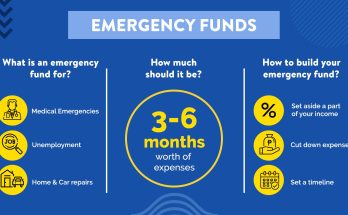The abrupt reality of job loss can be one of life’s most unsettling experiences, instantly transforming a stable routine into a landscape of uncertainty. Whether it’s due to company restructuring, economic downturns, or unforeseen circumstances, the initial shock can be paralyzing, triggering a cascade of emotional and financial anxieties. However, while the event itself might be beyond one’s control, how one responds to it is entirely within their power. Navigating job loss effectively isn’t about succumbing to despair; it’s about adopting a structured, proactive approach that prioritizes immediate financial stability, leverages resources, and strategically positions oneself for a successful career transition.
The very first, and perhaps most challenging, step upon losing a job is to manage the immediate emotional impact and resist panic. It’s entirely normal to feel a range of emotions—shock, anger, fear, sadness. Allow yourself time to process these feelings, but establish a boundary to prevent them from leading to paralysis. Engage in healthy coping mechanisms: talk to a trusted friend or family member, exercise, or practice mindfulness. Crucially, avoid making any rash financial decisions in the immediate aftermath. This period is about clear-headed assessment, not emotional reactions. For example, instead of immediately selling off investments, focus on gathering information and understanding your current standing.
Once you’ve steadied yourself, the next critical action is to secure your immediate financial position and understand your severance/benefits. Begin by contacting your former employer to clarify all aspects of your departure. This includes understanding the terms of any severance package (how much, when it will be paid), the continuation of health benefits (e.g., COBRA in the U.S., or equivalent options in Thailand), and any payout for unused vacation or sick leave. Simultaneously, immediately apply for unemployment benefits, if available in your region. These benefits, though typically not replacing your full income, can provide a vital financial bridge during your job search. This systematic gathering of information clarifies your short-term financial runway.
With your financial situation assessed, the absolute priority shifts to aggressively cutting non-essential expenses and creating a bare-bones budget. This isn’t about minor adjustments; it’s about entering “survival mode” to extend your financial runway as long as possible. Review every line item in your existing spending plan and ruthlessly eliminate or significantly reduce discretionary spending: dining out, entertainment, unnecessary subscriptions, and non-essential shopping. Focus solely on your core necessities: housing, utilities, basic groceries, and critical loan payments (including any credit obligations, as per the saved information from July 19, 2025). This might mean foregoing your daily café habit in Bangkok or canceling streaming services temporarily. Every baht saved directly adds to your financial breathing room, delaying the depletion of your savings.
The strategic deployment of your emergency fund then becomes paramount. This fund, typically held in a separate, liquid account, is precisely for moments like job loss. Use it as intended, drawing only what is necessary to cover your essential expenses as identified in your bare-bones budget. Resist the temptation to dip into long-term savings, retirement accounts, or child education funds unless absolutely necessary and as a last resort. Your emergency fund acts as your primary shield against financial collapse, providing the critical time needed to secure new employment without accruing high-interest debt.
Simultaneously with managing finances, shift your energy towards a focused and strategic job search. Update your resume and LinkedIn profile, tailoring them to the types of roles you’re seeking. Leverage your professional network aggressively—inform contacts that you are looking for new opportunities, as referrals are often the most effective way to find new roles. Dedicate specific hours each day to job applications, networking, and skill development, treating the job search as your new full-time job. Consider expanding your search to include industries you hadn’t previously considered, or exploring temporary/gig work (as discussed in side hustle budgeting) to generate immediate income while you search for a permanent position. For instance, if you were in a tourism-dependent role in Thailand, you might explore opportunities in remote work, online teaching, or local digital marketing roles that are less sensitive to international travel fluctuations.
Finally, maintain your well-being and leverage resources. Job loss is a mentally taxing experience. Prioritize self-care: healthy eating, exercise, and sufficient sleep. Seek out mental health support if needed. Utilize community resources, such as government employment agencies, career counselors, and online courses to upgrade skills or fill knowledge gaps. Many professional organizations offer free or low-cost resources for members facing job transitions. Remember, this is a temporary setback, not a permanent state. By acting decisively to secure your finances, strategically focusing on your job search, and diligently protecting your mental and physical health, you can navigate the challenges of job loss with resilience, positioning yourself for a stronger and more informed next chapter in your career.




